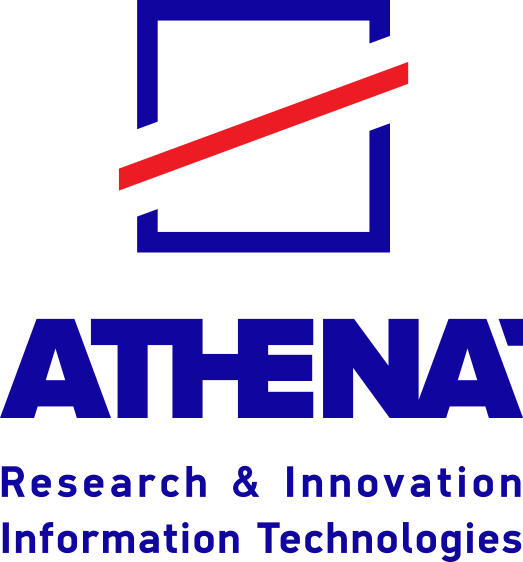
Time and Place: May 28, 2024 - Artemidos 1 - Amphitheater
Type: Presentations will take place in Archimedes, Attendance can be hybrid
|
Time
|
Title
|
Speaker
|
|
9:30 - 10:00
|
Welcome and coffee
|
|
10:00- 10:40
|
Conditioning Generative Models
|
Dimitris Samaras
|
|
10:40-10:50
|
Questions and Break
|
|
10:50 - 11:30
|
Multimodality in computer vision: understanding and generating visual data using multiple modalities
|
Vicky Kalogeiton
|
|
11:30-11:40
|
Questions and Break
|
|
11:40 - 12:20
|
Precision Medicine, AI, and Longitudinal Monitoring
|
Maria Vakalopoulou
|
|
12:20-12:30
|
Questions and Break
|
|
12:30 - 13:10
|
Parameter Efficient Fine Tuning of Large Foundation Models in the Context of Precision Medicine
|
Stergios Christodoulidis
|
|
13:10-14:30
|
Lunch and Discussion
|
Talk 1:Conditioning Generative Models
Abstract:Generative models trained with large computational effort on large datasets, such as diffusion models have been very successful in generating diverse and high-quality unconditional samples from the learned distribution.
In this talk, I will describe how to condition the generation of such models without retraining them, through posterior inference. I will also show how the use of self-supervised learning features instead of human annotations is sufficient to train generative models for digital histopathology to compensate for the absence of detailed text annotation. Finally, I will show some examples of controlling 3D generative models.
Speaker bio:
Dimitris Samaras received his diploma degree in computer science and engineering from the University of Patras, in 1992, the MSc degree from Northeastern University, in 1994, and the PhD degree from the University of Pennsylvania, in 2001. He is a SUNY Empire Innovation Professor of Computer Science at Stony Brook University, where he directs the Computer Vision Lab. His research interests include human behavior analysis, generative models, illumination modeling and estimation for recognition and graphics, and biomedical image analysis. He has co-authored over 200 peer-reviewed research articles in Computer Vision, Machine Learning, Computer Graphics, and Medical Imaging conferences and journals. He was the Program Chair of CVPR 2022 and is a frequent Area Chair in Computer Vision and Machine Learning conferences.
Talk 2:Multimodality in computer vision: understanding and generating visual data using multiple modalities
Abstract:In this talk, I will address the importance of multimodality in computer vision: using more than one modality (such as video, audio, text, masks and clinical data) for visual recognition and generation. First, I will focus on video understanding, which is the pillar of multimodality, as audio, faces, and visual temporal structure come naturally with the videos, and we can exploit them for free. Then, I will show some out-of-domain applications of visual multimodality, focusing on real clinical data together, textual data with medical imaging. Finally, I will show some examples of visual generation.
Speaker and bio: Vicky Kalogeiton (F) is an early career tenured Assistant Professor in the VISTA team of École Polytechnique since 2020. She received the M.Sc degree in Computer Science from DUTh, Greece, 2013. In 2017, she obtained her PhD in Computer Vision from the University of Edinburgh and Inria, Grenoble, advised by Prof. Vittorio Ferrari and Dr. Cordelia Schmid. In 2018, she joined the University of Oxford as a research fellow to work with Prof. Andrew Zisserman. Part of the work won the honorable mention award at ACCV 2022, the best paper award at ICCV-W 2021, the best poster award at the University Grenoble Alpes in 2017, and the best thesis award of DUTh in 2013. She has been serving regularly as Area Chair in Computer Vision conferences since 2021 and is the Associate Editor for CMBBE since 2017. She has been awarded five times outstanding reviewer for top vision conferences and outstanding Area Chair for ACCV 2022. Furthermore, she is the recipient of numerous awards, including the ANR JCJC 2022 for junior researchers in France and Microsoft Academic gifts in 2022-2025. Her research expertise lies in multimodality in computer vision with deep learning in three axes: generative AI, video understanding and medical applications and she regularly publishes papers in the most prestigious conferences and journals of her field (TPAMI, CVPR, ICCV, ECCV, ACCV, CVPR-W, ICCV-W, MICCAI, MIDL).
Talk 3: Precision Medicine, AI and Longitudinal Monitoring
Abstract:A lot of recent research focuses on exploring current very performant algorithms and models for processing visual computing, including medical imaging. In this talk, we will discuss our work on foundation models as well as novel formulations for handling longitudinal data using only imaging and multimodal data. We will focus on the medical setting and how we can integrate longitudinal information into radiology for lung and transplant kidneys.
Speaker bio: Maria Vakalopoulou is an Assistant Professor (since 2019) and the leader of the biomathematics group at MICS laboratory of Centrale Supelec University Paris-Saclay, Paris, France, and she is also affiliated with INRIA Saclay and Archimedes AI. Prior to that, she was a postdoctoral researcher at the same university (2017-2019) while she received her PhD from the School of Rural, Surveying and Geoinformatics Engineering at NTUA, Athens, Greece (2017), where she also received her engineering diploma. Her research interest is the development of artificial intelligence methods and algorithms for visual perception, including remote sensing and medical imaging. For the last 7 years, her research is focusing on the development of novel and robust algorithms for cancer treatment in close collaboration with clinicians in France working in, e.g., Gustave Roussy and AP-HP hospitals. In particular, her interests include self, unsupervised, and generative learning as well as training with limited amounts of data. Her research has been published in more than 23 journal papers including The Lancet Oncology (IF 54.43), Radiology (IF 29.15), Medical Image Analysis (IF 8.54), Transactions on Computational Biology and Bioinformatics (IF 3.71), while her research contributions have received a number of awards and honors.
Talk 4:Parameter Efficient Fine Tuning of Large Foundation Models in the context of Precision Medicine
Abstract:Foundation models are pushing the performance boundaries on a variety of tasks. Parameter efficient fine tuning techniques for such models can provide a solution in cases of large domain shifts between the original training domain and the target domain specifically when the amount of training data is small. In this talk, I will provide an overview of the different types of parameter efficient fine-tuning techniques focusing on probabilistic formulations towards reliable (well-calibrated) models that at the same time can provide uncertainty quantifications.
Speaker and bio: Stergios Christodoulidis is an Assistant Professor at the Mathematics Department of CentraleSupélec, University Paris-Saclay in France. He is an electrical and computer engineer graduated from Aristotle University of Thessaloniki and he holds a Ph.D. in biomedical engineering from the University of Bern in Switzerland. During his Ph.D. he focused on computer-aided diagnosis systems for lung diseases. He has then continued his research on cancer care as a post-doctoral fellow of the Swiss National Science Foundation (SNSF) at Gustave Roussy in Paris where he worked towards AI-assisted personalized medicine for breast cancer as part of the Centre National de Médecine de Précision (PRISM). Lately, he has been awarded a young researcher grant from the Agence National de la Recherche (ANR) aiming at enabling spatially aware computational molecular profiling from digital pathology.
________________________________________________________________________________
Meeting ID: 385 574 263 515
Passcode: f7AHQR
________________________________________________________________________________














